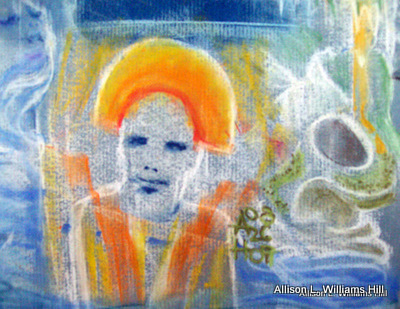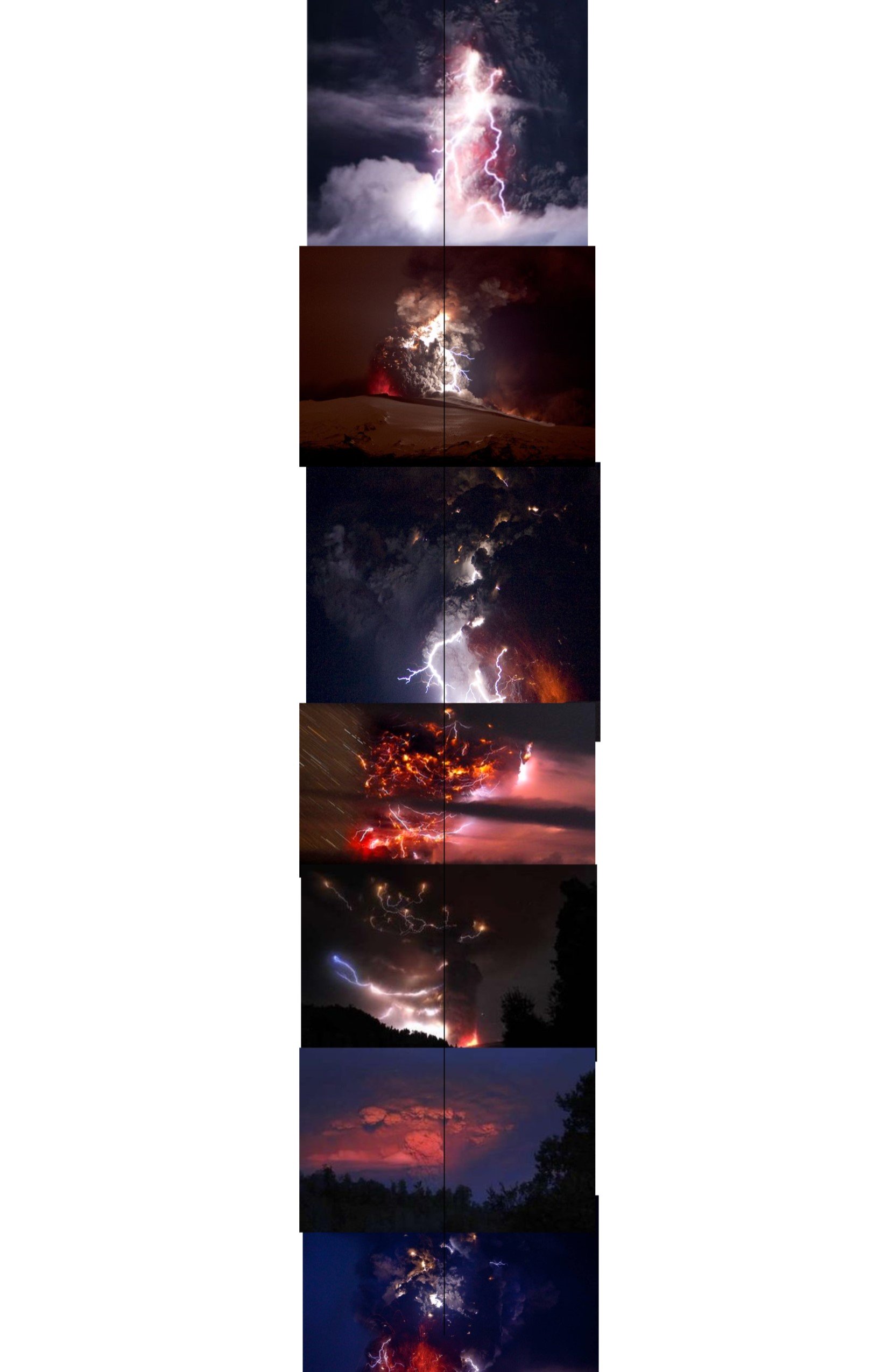The Effects Of Thought
Part 2
The Effects Of Thought Part 2 from "The Hidden Side of Things"
Chapter XIX: By What We Think by CW Leadbeater
We produce thought forms.

Thought by Allison L. Williams Hill
4. Every thought produces not only a wave but a form-- a definite, separate object which is endowed with force and vitality of a certain kind, and in many cases behaves not at all unlike a temporary living creature. This form, like the wave, may be in the mental realm only; but much more frequently it descends to the astral level and produces its principal effect in the world of emotions. The study of these thought-forms is of exceeding interest; a detailed account of many of them, with coloured illustrations of their appearance, will be found in the book Thought-Forms. At the moment we are concerned less with their appearance than with their effects and with the way in which they can be utilised.

Let us consider separately the action of these two manifestations of thought-power. The wave may be simple or it may be complex, according to the character of the thought; but its strength is poured out chiefly upon some one of the four levels of mental matter-- the four subdivisions which constitute the lower part of the mental world. Most of the thoughts of the ordinary man centre round himself, his desires and his emotions, and they therefore produce waves in the lowest subdivision of the mental matter; indeed, the part of the mental body built of that kind of matter is the only one which is as yet fully evolved and active in the great majority of mankind.

In this respect the condition of the mental body is quite different from that of the astral vehicle. In the ordinary cultured man of our race the astral body is as fully developed as the physical, and the man is perfectly capable of using it as a vehicle of consciousness. He is not yet much in the habit of so using it, and is consequently shy about it and distrustful of his powers; but the astral powers are there, and it is only a question of becoming accustomed to their use. When he finds himself functioning in the astral world, either during sleep or after death, he is fully capable of sight and hearing, and can move about whithersoever he will.
In the heaven-world, however, he finds himself under very different conditions, for the mental body is as yet by no means fully developed, that being the part of its evolution upon which the human race is at the present moment engaged. The mental body can be employed as a vehicle only by those who have been specially trained in its use under teachers belonging to the Great Brotherhood of Initiates; in the average man its powers are only partially unfolded, and it cannot be employed as a separate vehicle of consciousness. In the majority of men the higher portions of the mental body are as yet quite dormant, even when the lower portions are in vigorous activity. This necessarily implies that while the whole mental atmosphere is surging with thought-waves belonging to the lowest subdivision, there is as yet comparatively little activity on the higher sub-divisions-- a fact which we shall need to have clearly in mind when we come to consider presently the practical possibility of the use of thought-power. It has also an important bearing upon the distance to which a thought-wave may penetrate.
To help us to understand this we may take an analogy from the action of the voice of a public speaker. He can make himself heard to a certain distance-- a distance which depends upon the power of his voice. In the case of a thought-form that power corresponds to the strength of the vibrations. But the distance to which a speaker can be understood is quite another matter, and depends often more upon the clearness of his enunciation than the strength of his voice. That clearness of enunciation is represented in the case of a thought-form by definiteness, clearness of outline.

Many a man who is not trained in the art of public speaking might send forth a shout which would penetrate to a considerable distance, but would be quite unintelligible. Just in the same way a man who feels strongly, but is not trained in the art of thinking, may send forth a powerful thought-form which conveys strongly enough the feeling which inspires it-- a feeling of joy, of terror or of surprise; and yet it may be so vaguely outlined as to impart no idea of the nature or the cause of the emotion. Evidently, therefore, dearness of thought is at least as necessary as strength of thought.

Thought Nummo detail by Allison L. Williams Hill
Again, the speaker' s voice may be clear and strong, and his words may be perfectly audible at the place where an auditor is standing; yet the words convey no meaning to that auditor if he is so preoccupied with some other matter that he is not paying attention. This also has its exact correspondence in the world of thought. One may send out a clear, strong thought, and even aim it definitely at another person, but if that man' s mind is entirely preoccupied with his own affairs, the thought-form can produce no impression upon his mental body. Often men in a wild panic do not even hear the advice or orders shouted to them; under the same influence they are equally impervious to thought-forms.

The majority of mankind do not know how to think at all, and even those who are a little more advanced than that, rarely think definitely and strongly, except during the moments in which they are actually engaged in some piece of business which demands their whole attention. Consequently, large numbers of minds are always lying fallow all about us, ready to receive whatever seed we may sow in them.
Links

The above meditation mandala will be available soon.












